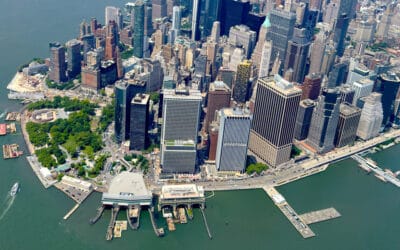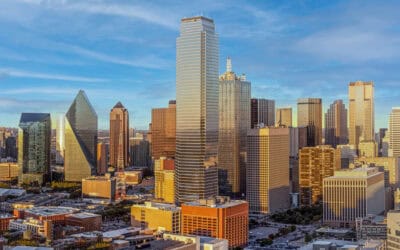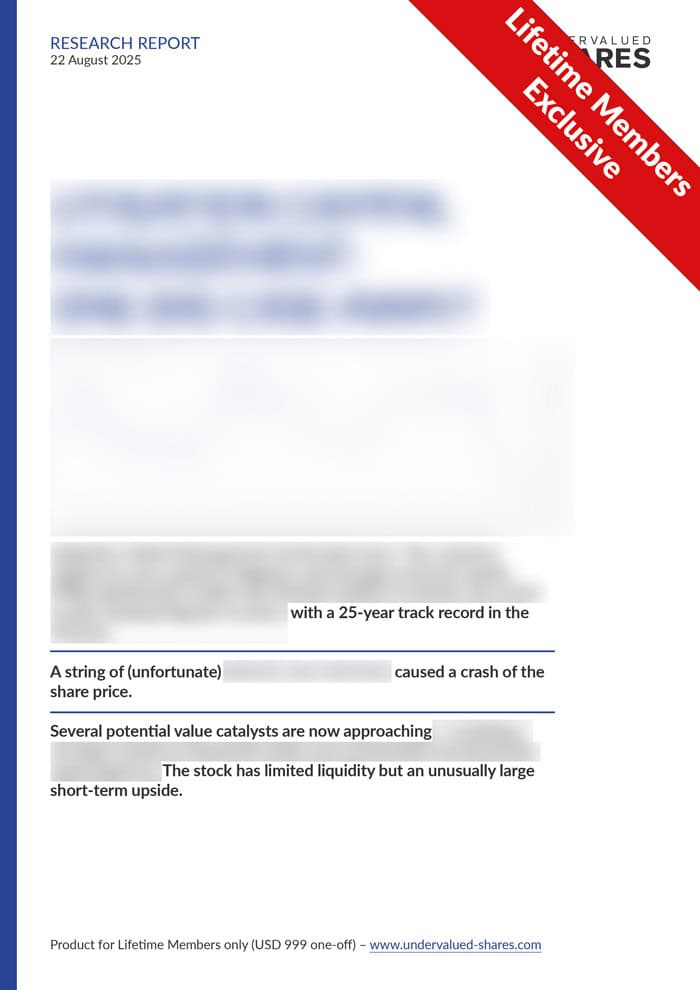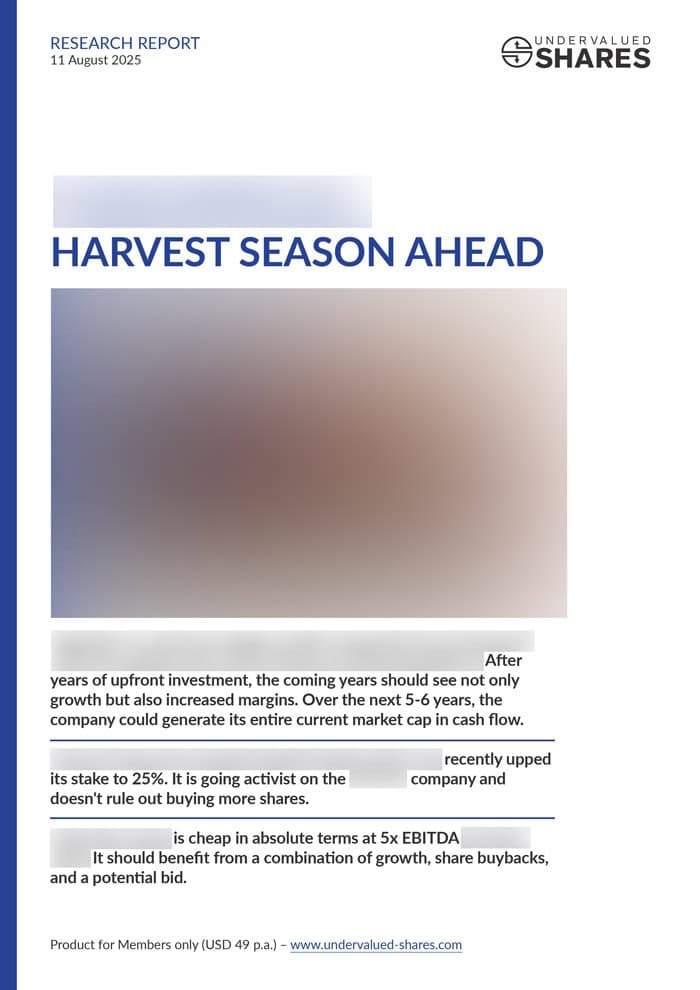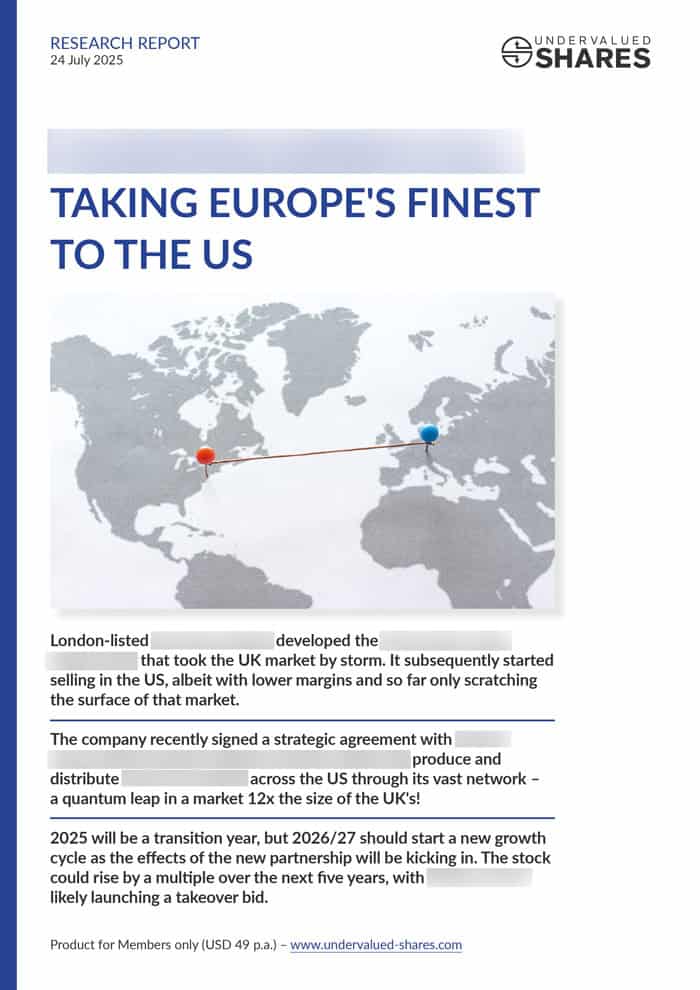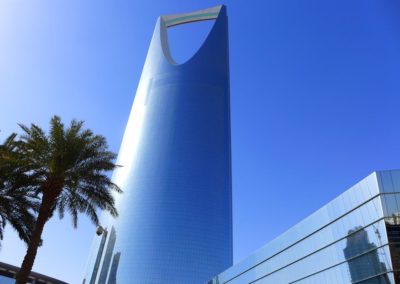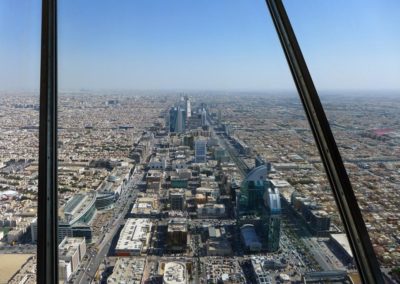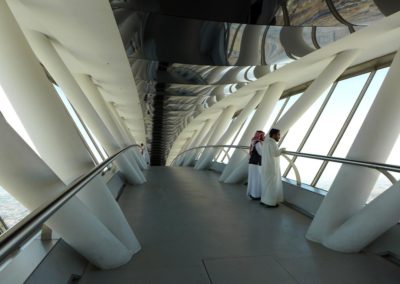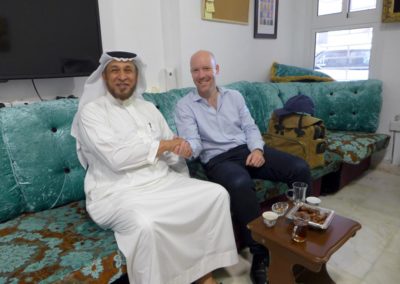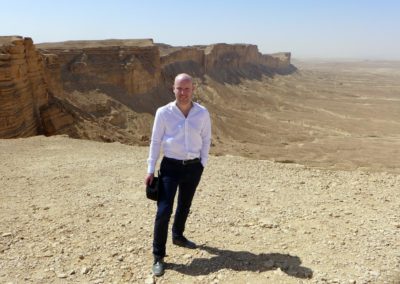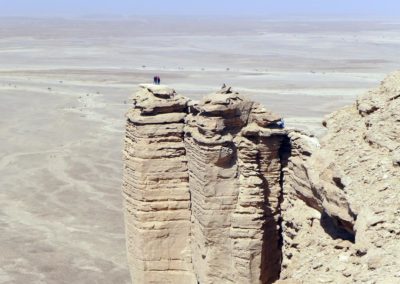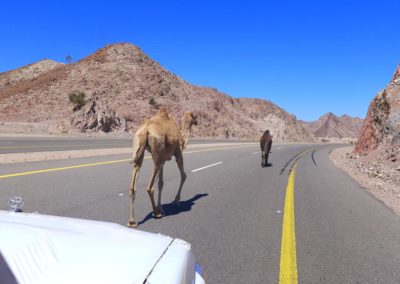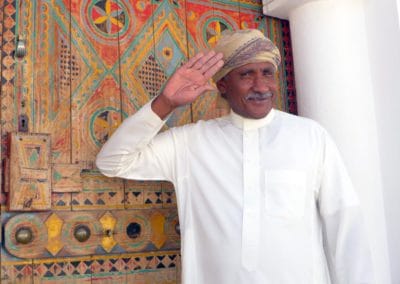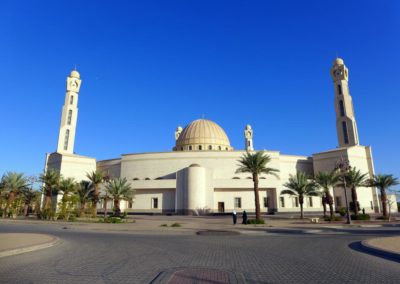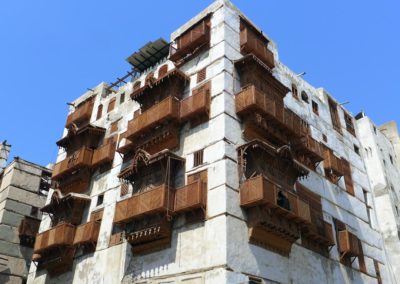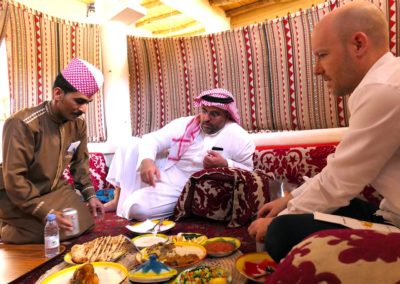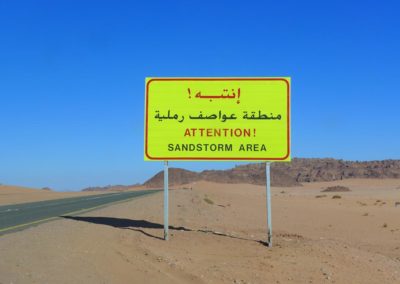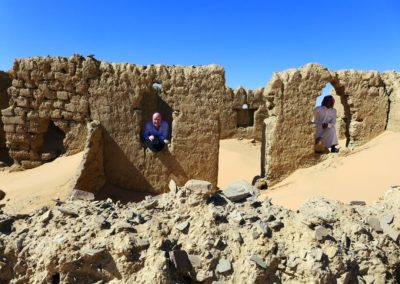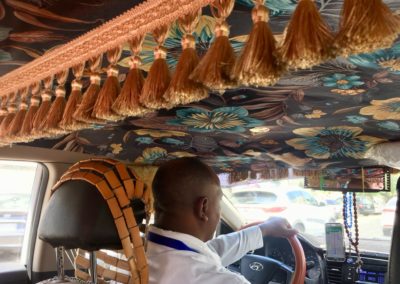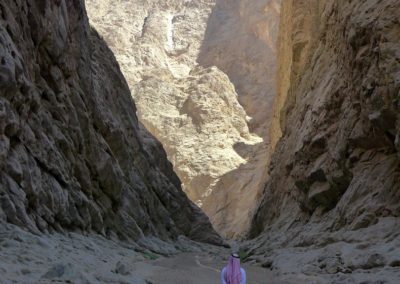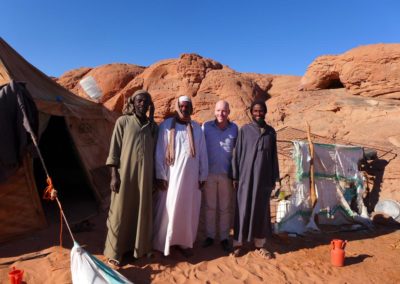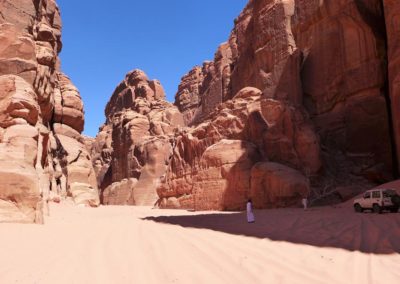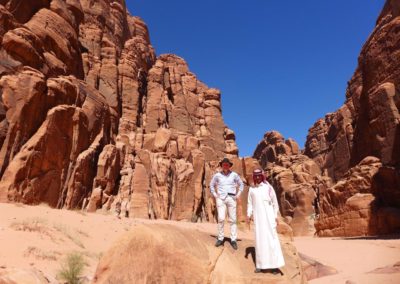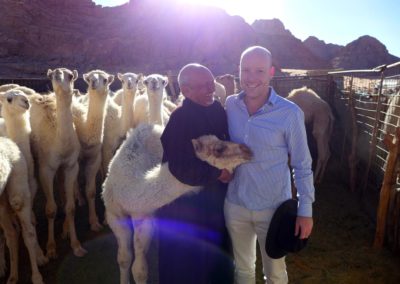Seaport Entertainment Group is a NYSE-listed play on the revival of New York’s southern tip. I visited the neighbourhood to evaluate the opportunity.
Saudi Arabia, the Aramco IPO, and why you MUST visit
Saudi Arabia is a land of opportunity. You may be surprised by my positive statement about the controversial country, but I passionately believe it to be true. Not because I'd be particularly excited about investing in the upcoming IPO of Saudi Aramco (more about this later), but because of a swathe of other investment-related aspects.
Plus, there is the separate aspect of travelling there. There is no other place on earth that I have recently urged more of my personal friends to go and visit, than the Kingdom ruled by the House of Fahd. Not one of my friends had previously considered it a place on their bucket list. Some of them are now chomping at the bits to go.
Here is my lowdown about the upcoming Aramco IPO, the potential hidden gems of the Saudi Stock Exchange, and why the best investment of all might be to visit the Saudis (and soon).
When they are keen to sell, should you buy?
After years of preparations and false starts, the IPO of government-owned oil company Saudi Aramco is finally underway in earnest.
In case you missed the headlines of the past week, the stock will be listed on Riyadh's "Tadawul" stock exchange before the year is over. A listing on an international stock exchange, such as London or Tokyo, is supposed to follow within the next years – market conditions, politics, and governance standards permitting.
Saudi Aramco is short for Saudi Arabian Oil Company, and based on the historic name, Saudi-American Oil Company. It earned more money last year than Apple, Google, and Exxon combined. Its 2018 net profit of USD 111bn made it the world's only company with a triple-digit billion net profit (although projections for 2019 are lower). Right from its first day of being listed, Saudi Aramco should become the world's largest public company by market capitalisation.
The question is, is it going to be a good investment?
In my view, common sense is enough to provide an answer.
The Saudi authorities have just spent four years trying to organise the IPO of the company. Preparations were an on-off affair, not just because of the political issues they experienced along the way but mostly because they had excessive expectations about the achievable valuation.
In 2016, Crown Prince MBS was aiming for:
- A valuation fixed between USD 2,000bn and USD 2,500bn.
- A listing in either New York or London.
- The sale of stock worth USD 100bn to USD 200bn, i.e., 4% to 10% of the company.
- The placement primarily targeting international investors.
Fast forward 48 months of bumpy IPO preparations, this is what's now going to happen:
- The valuation should be in the range of USD 1,200bn to USD 2,300bn. It will be based on a roadshow rather than a fixed price.
- The listing will only be on the local Saudi exchange for now.
- The exact size of the aimed-for placement is kept under wraps, but is widely believed to be 3% of the company; and the door has been kept open to place as little as 1% now and a further tranche next year.
- At least half of the placement will likely have to rely on domestic demand, which in turn some say partially relies on MBS "nudging" the local elite.
Does that sound like an investment with positive momentum under its wings?
Because of both its size and particular nature, the Aramco IPO will become a milestone in the country's history and one that the entire world media will report about. Also, the Saudi government will benefit mightily – both financially and politically – if it manages to turn it into a success. Given this overall constellation, it's undoubtedly an IPO worth paying attention to.
I'd love to come to an optimistic conclusion and become part of something special by subscribing to a few shares. I wouldn't even be put off by any of the usual concerns the Western media repeats ad nauseam:
- The Jamal Khashoggi affair? It appears to me that he was a political activist rather than a journalist. Without a doubt, he must have received multiple warnings which he chose to ignore. Everyone in Saudi Arabia knows that the one thing not to do, is to publicly criticise the Royal family. It’s a warning the first time you break the rule, a prison sentence if you do it again, and the death penalty the third time. Khashoggi thought he was above the law. Tough luck, and irrelevant for my investment decisions.
- Aramco a heavily government-influenced company? So are thousands of other publicly listed companies around the world, especially in the energy sector.
- The Saudi human rights track record? It's not up to me to lecture other countries on how to run their affairs. Besides, the situation is much more likely to improve if they internationalise their large companies and get in more foreign capital.
For me, it's all about the valuation of the stock. What do I get for my money and how does that stack up compared to the 50,000 other publicly listed companies around the world that I could invest in instead?
What worries me is that this is an IPO designed to maximise the amount of money the Saudi government receives from selling shares.
When investment banks and PR firms are paid mega-millions to represent a seller's interests, do I want to be on the buyer's side?
Just check back to my November 2018 column on Aston Martin, where I warned about similar circumstances. Great marketing fanfare, existing shareholders wanting to sell, and investment banks promoting it. Today, the stock is down 78% just 12 months after its IPO.
Aramco is much more of a solid proposition than Aston Martin, and I would never expect a similarly bad performance. But there is an important general rule to keep in mind. When someone else puts on a global marketing circus show to convince investors to buy so that they can cash out, you are not likely to get a bargain. The seller will, naturally, try to get the maximum achievable price off you.
Bargains are usually found where no one is looking right now.
As it happens, bargain-basement valuations can probably be found among the raft of other companies listed on the Saudi Stock Exchange. I noticed as much in the appendix of a document that landed on my desk last week.
This, my friends, might be the real investment story to come out of Saudi Arabia right now.
A large but ignored market
Come to think of it, Saudi Arabia has a surprisingly diverse stock exchange.
It comes with 170 listed companies and a respectable combined market capitalisation of around USD 500bn. It is the largest stock exchange in the Gulf region even before the listing of Aramco. Who'd have thought?
When you rummage through the list of listed companies, you stumble across all sorts of names that remind you of typical emerging market stock exchanges:
- Saudi Electricity
- Saudi Arabian Mining
- Riyad Bank
- Najran Cement
- Saudi Cable
Large companies operating the backbone of the local economy have always been a feature of emerging markets. During the initial period of an economy opening up, the stocks of well-established companies often do amazingly well, even if their products are unexciting.
I haven't looked at any of these companies in detail yet but was struck by a table hidden in the appendix of a recent research report from Morgan Stanley.
Morgan Stanley regularly publishes a list of those 25 emerging market companies from Emerging Europe, the Middle East and Africa that are the LEAST favoured by international fund managers right now. The ranking is based on fund managers underweighting these companies in their portfolios relative to the companies' weighting in the relevant indices. Put more simply, the index weighting tells fund managers that they really ought to buy more of these stocks – but they actively decide not to do so.
Of the 25 companies on the least-favoured list, no fewer than seven (!) are from Saudi Arabia. Speak of a country currently not being held in high regard by institutional investment managers.
Not unsurprisingly, only about 8.5% of Saudi stocks are currently held by foreign investors. Compare that to the British stock market where over 50% of the stock is in international portfolios. Ditto for more mature emerging markets, e.g., over half of the South African market's capitalisation is held by foreigners.
Fund managers do tend to pay close attention to companies' weighting in indices, which is why the current situation of the Saudi market is all the more remarkable. These fund managers have decided not to venture too deeply into the Saudi market, even though the index weighting tells them to do so. Based on this particular metric, stocks from Saudi Arabia are deeply unpopular right now.
When I have some time on my hands, I will start to look more closely at some of the potential opportunities there. It does strike me as the kind of constellation where real bargains might be found.
I would hope to come across exciting plays on the country's ongoing opening of its economy. For the first time in 35 years, Saudi Arabia permitted the opening of cinemas. It is only a small example, but a highly symbolic one, and I heard similar stories on the social circuit. E.g., I recently met someone who helped bring American-style entertainment events to the country – backed by mega-size funding. Much as such reforms never happen in a straight line, things are shifting.
The visible, tangible changes currently happening across the country are combined with a relatively large population of 22m and significant local purchasing power.
There are plenty of market niches in the Saudi economy that are currently either underserved or don't even exist yet. Imagine the kind of growth potential for a cinema operator in a country that so far has had zero cinemas at all. If I was a young entrepreneur, I'd seriously look at Saudi Arabia as a white canvass situation. For us investors, some Saudi stocks are bound to represent a ground-floor opportunity, provided the reforms continue.
Scrolling through the list of public companies, I found an operator of fitness studios (Leejam Sports), two marketing agencies (Tihama Advertising, Saudi Research and Marketing Group), and an operator of private education centres (Ataa Educational Company). There is also an entire segment of Real Estate Investment Trusts (REITs).
These are the classic kind of companies that benefit from an economy about to become westernised.
Some of them might trade at attractive multiples because the country is currently so out of favour. If my instinct is right, these could be much more appealing investment propositions than Aramco.
I'll definitely follow up on this subject.
In the meantime, you might want to consider the current unusual situation for international visitors. Knowing how many of my readers like to explore exciting new places, I'm adding an exceptional off-topic part to this issue of my Weekly Dispatches.
Beat the crowds and become a pioneer tourist
Until two months ago, Saudi Arabia did not usually let in tourists.
If you were a Muslim who wanted to visit Mecca, fine.
International business travellers with a local sponsor were also admitted without further ado.
Conventional tourists, however, found their route into the country blocked. There was no tourist visa, simply because Saudi Arabia didn't want that kind of visitor.
I visited anyway, back in March 2018. As it happened, a Sheikh sponsored me, and I was free to travel the country as I pleased. And travel I did!
If you wonder what's to see in Saudi Arabia, let me give you some examples:
- Ancient cultural sites that easily outdo Jordan's Petra.
- Countless historical sites relating to Lawrence of Arabia.
- Some of the most beautiful natural places I've ever seen (and I've lived in the Galapagos Islands for four years, so my standards are high).
At most of these places, I was the ONLY international visitor. Nor were there many local visitors, because Saudis don't generally view travelling within their own country as desirable.
One of the fortifications built by Lawrence of Arabia wasn't even on maps or Google Earth, and it felt to me like no one had been there in years. I only came across it because the driver I hired to take me across the less-populated North of the country had an uncle who knew at which point of the highway to turn right and drive off into the desert.
When I roamed the rugged Northern part of the country, I felt like I must have been the only Western person within a hundred miles. I certainly didn't see anyone else who looked like a German, American or Chinese tourist. No one was walking around with selfie sticks, and no local vendors were hassling me. Bliss!
All the while, I felt perfectly safe and travelling was as easy as anywhere else in the world. I didn't get to use any of the country's railways, which I regret. But I enjoyed using UBER to get from A to B, and travelling on domestic flights was a throwback to the days when air travelling was a pleasant affair. I wasn't able to go inside mosques and shoot photos, but rules about not shooting photos of mosques from the outside are now widely disregarded. At one mosque, I even had a chat with the security guards while snapping away.
I also visited the future site of Neom, the futuristic, extraterritorial city that MBS dreams to build, backed by a USD 500bn investment (which is where parts of the proceeds from the Aramco placement are supposed to go). I have no idea if Neom will take off as planned, and it sure does look like a project that has its challenges cut out for itself. However, I enjoyed learning about aspects that could affect the economic relationships of the entire region, and which up to this point, I had never read about. Travel does broaden the mind.
If Neom does take off, I will have a photo of myself next to the city's future site with nothing to see but sand, mountains, and coastline. That photo could make for a great blog post a decade (or two) down the road – watch this space!
To cut through the case, this was one of the best and most interesting touristic experiences I've had in recent years (Saudi Arabia even made it into my free eBook "10 places I recommend you visit during your lifetime"). All the more because it gave me countless insights into a country that makes it into the news almost daily but mostly because of a few ever-repetitive stories (arms purchases, oil, women's right, etc). When everyone signs from the same hymn sheet, I start to question the established narrative. My aim was to see what the situation on the ground looks like, once you leave the realm of politics and look at everyday life.
As ever, it was interesting to meet the locals:
- Veiled girls in the streets of Riyadh were hitting on me. Like everywhere in this part of the world, the young generation does want to see change.
- I watched the local Harley Davidson club pull up their bikes in front of my local Starbucks in Riyadh. Western brands are much-liked. Fun fact, Saudi Arabia has the world's highest density of American fast food restaurants outside of the US.
- The family of my driver invited me to their home to proudly show me their 1940s Wehrmacht rifle, which still serves them well on their rabbit hunts in the desert. Germans (and German products) are held in high regard in Saudi.
There were plenty of fun moments. E.g., one retired army colonel and thrice-married Sheikh (that's three wives at the same time!) channelled his entire charm to make me convert to the Wahabist version of Islam. He failed miserably, but we enjoyed eating dates together regardless.
I am not an expert in Saudi Arabia, nor do I have a crystal ball for the country's future. However, you do get an impression of a country's vibe when travelling across it for a few weeks. I can easily see a scenario where, within five to ten years, this becomes much more of a normal country by conventional standards. Think of the implications this can have for investments made at bargain-basement prices before these new trends take off.
My quick and dirty summary of my visit: "It's pretty much a normal country to travel in, and one that has lots to offer. Quirks thrown in for good measure."
Before you ask, they are also making it easier for female visitors. Western women count as honorary men (or "the third sex", as they are called locally), and they can also travel across the country without restrictions but should wear clothes that show a level of respect for local customs.
If you want to go, here are a few pointers
Since I went, Saudi Arabia has pushed hard to launch itself in the international tourism market. Just like the Aramco IPO, it took a few false starts, but it's now happening.
There is now a website dedicated to visiting Saudi Arabia. Their 2-minute video is well worth watching for a quick visual impression.
The single best Saudi travel website is Blue Abaya, a blog written by a Finnish world traveller, Laura Alho, who married a Saudi. She regularly takes her husband and kids on discovery tours across her adopted country, and she has become the most widely-cited international source for visiting the country. I used some of her services while in Saudi and cannot recommend her highly enough.
The authorities launched a new tourist visa in September 2019. Citizens of 49 countries can now purchase their e-visa online. If you live in the US, Europe or the more affluent countries of Asia, you can now probably get the Saudi tourist visa.
Agencies in Britain have started to offer package trips, and these are likely to become available in other countries.
If you want to do some reading, I recommend the "12 weeks in Riyadh" book recently published by Susanne Koelbl about her time in Saudi Arabia. It's already available in German and the English version is due to come out next year.
I have no doubt that Saudi will emerge as one of the next hot global travel destinations. Once the first vintage of Western tourists share their selfies on Instagram, the word is bound to spread. The images will speak for themselves.
If you are keen on avoiding crowds – as I am – then now is the time to go (and send me a postcard if you do!). Your no. 1 place to visit in Saudi Arabia should be the ancient city of Mada'in Saleh, which I believe will one day be as famous as Angkor Wat, Petra, or Machu Pichu. You can learn more about it in Laura's extensive article.
While some of you will hopefully enjoy learning about Saudi Arabia first-hand, I'll continue my quest to research their local stock market.
When something is out of favour, I sense opportunity! Rest assured I'll get back to the investment angle of all this, in one of my future Weekly Dispatches or in-depth investment reports.
Did you find this article useful and enjoyable? If you want to read my next articles right when they come out, please sign up to my email list.
Share this post:
Get ahead of the crowd with my investment ideas!
Become a Member (just $49 a year!) and unlock:
- 10 extensive research reports per year
- Archive with all past research reports
- Updates on previous research reports
- 2 special publications per year
